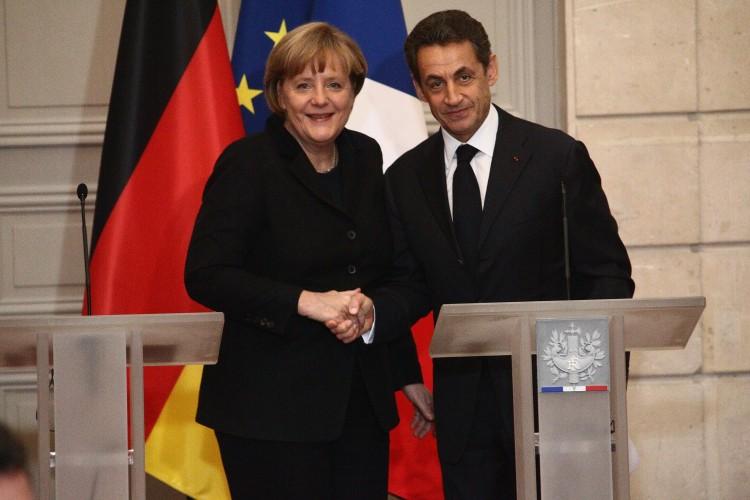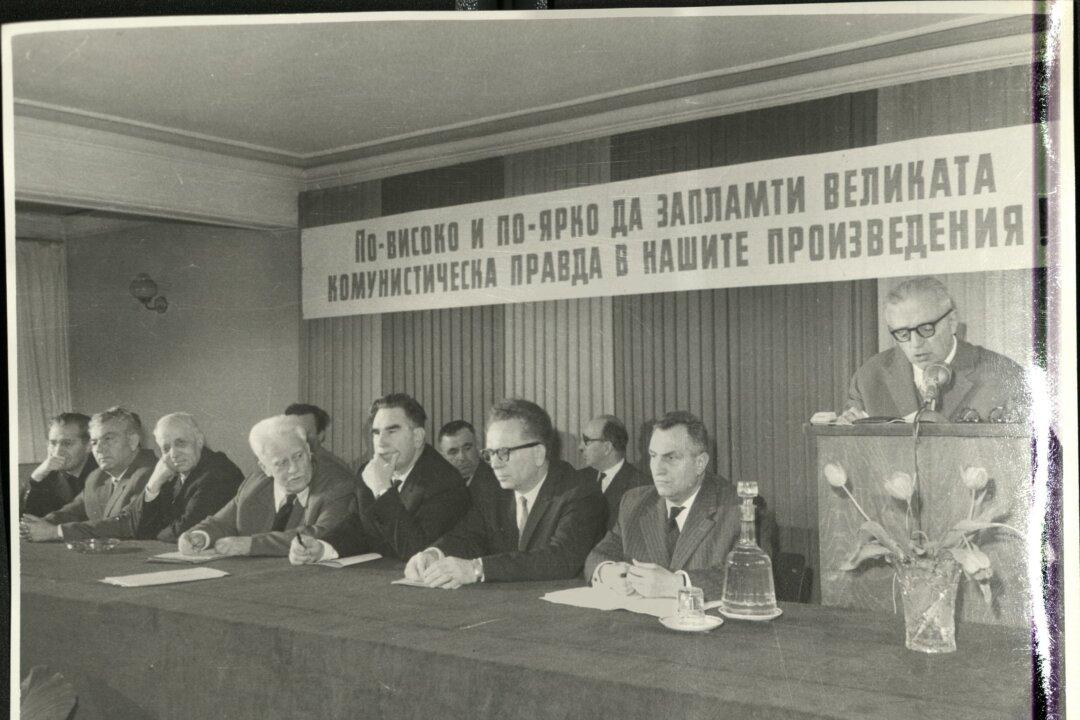PARIS—German Chancellor Angela Merkel and French President Nicolas Sarkozy agreed to three important proposals during an emergency meeting Monday in the French capital: Seeking a new European Union treaty before March 2012, imposing a tougher discipline on all 17 eurozone member countries, and dismissing the issuing of eurobonds, something propped by all other stakeholders in the European monetary agreement.
According to their proposal, the new European treaty would either be signed by all 27 EU members or if not accepted, only by the eurozone countries, with other nations signing on a voluntary basis.
“We don’t have time; we are conscious of the gravity of the situation,” said Sarkozy during a press conference in front of the Elysee Palace in Paris after a luncheon with Merkel. “We want to go as fast as possible based on this agreement between France and Germany, which is open to others.”
The two leaders backed applying automatic sanctions against EU member states whose deficits rise over 3 percent of their gross domestic product. The European Court of Justice would become the watchdog with power to reject budgets that do not follow the 3 percent rule. However, the court would have no right to declare a country’s budget null or void.
“The European court won’t be able to check every budget, but rather rule on whether the debt brake anchored in national law has been implemented in such a way that it adheres to the Stability and Growth Pact,” Merkel said after the meeting.
The meeting between the leaders of the two most powerful European economies aimed to prepare a common plan to present at the summit of EU leaders Dec. 8–9 in Brussels. The summit is seen as a last opportunity this year to find a way out for the battered European currency and the reputation of the indebted EU countries. The concrete proposals by Merkel and Sarkozy will be submitted on Wednesday in a letter to EU President Herman Van Rompuy.
The Merkel-Sarkozy rendezvous coincided with the announcement of a $5 billion (3.8 billion euro) austerity budget by Irish Prime Minister Enda Kenny on Monday, and came a day after Italy’s Prime Minister Mario Monti called on his Cabinet to approve of $32 billion (24 billion euro) worth of austerity measures to cope with the country’s huge $2.4 trillion (1.8 trillion euro) debt.
The crisis of the euro began snowballing in 2010, when it emerged that Greece had an unexpected huge debt of nearly $400 billion and asked its European counterparts for financial aid. Bailouts were subsequently needed in Portugal and Ireland with Spain teetering on the edge. Italy, the third biggest economy in the eurozone, is also close to bankruptcy.







